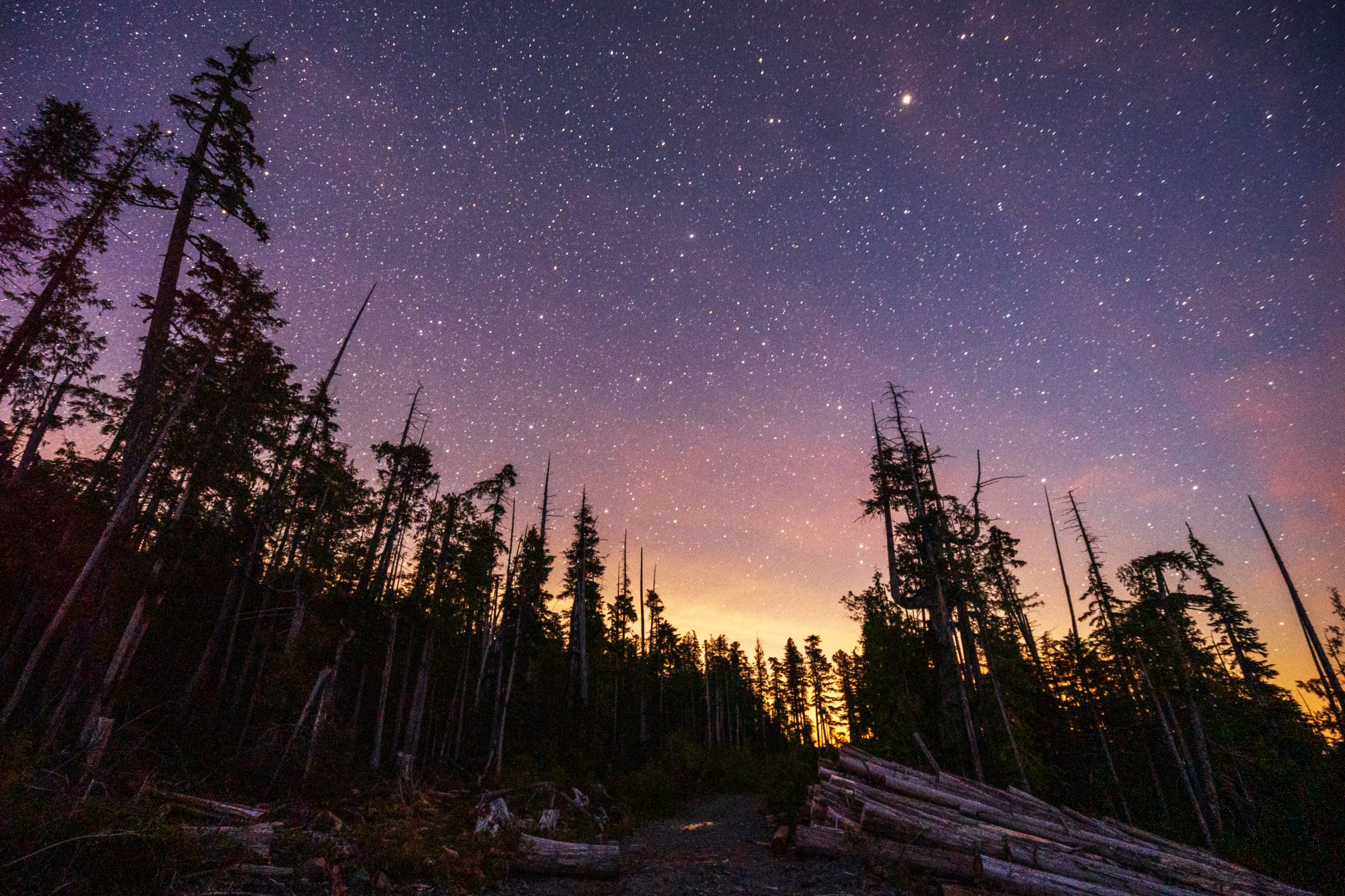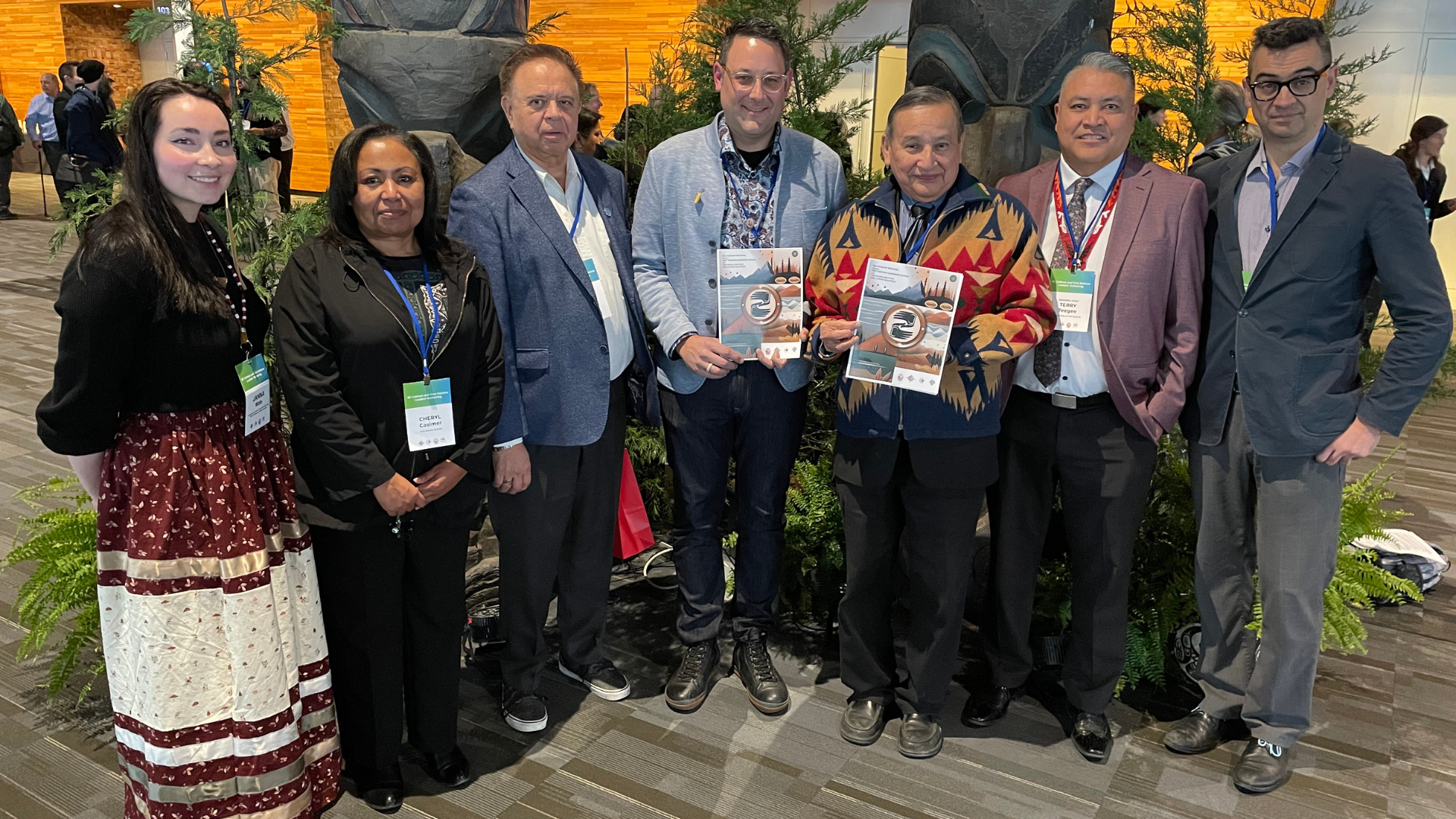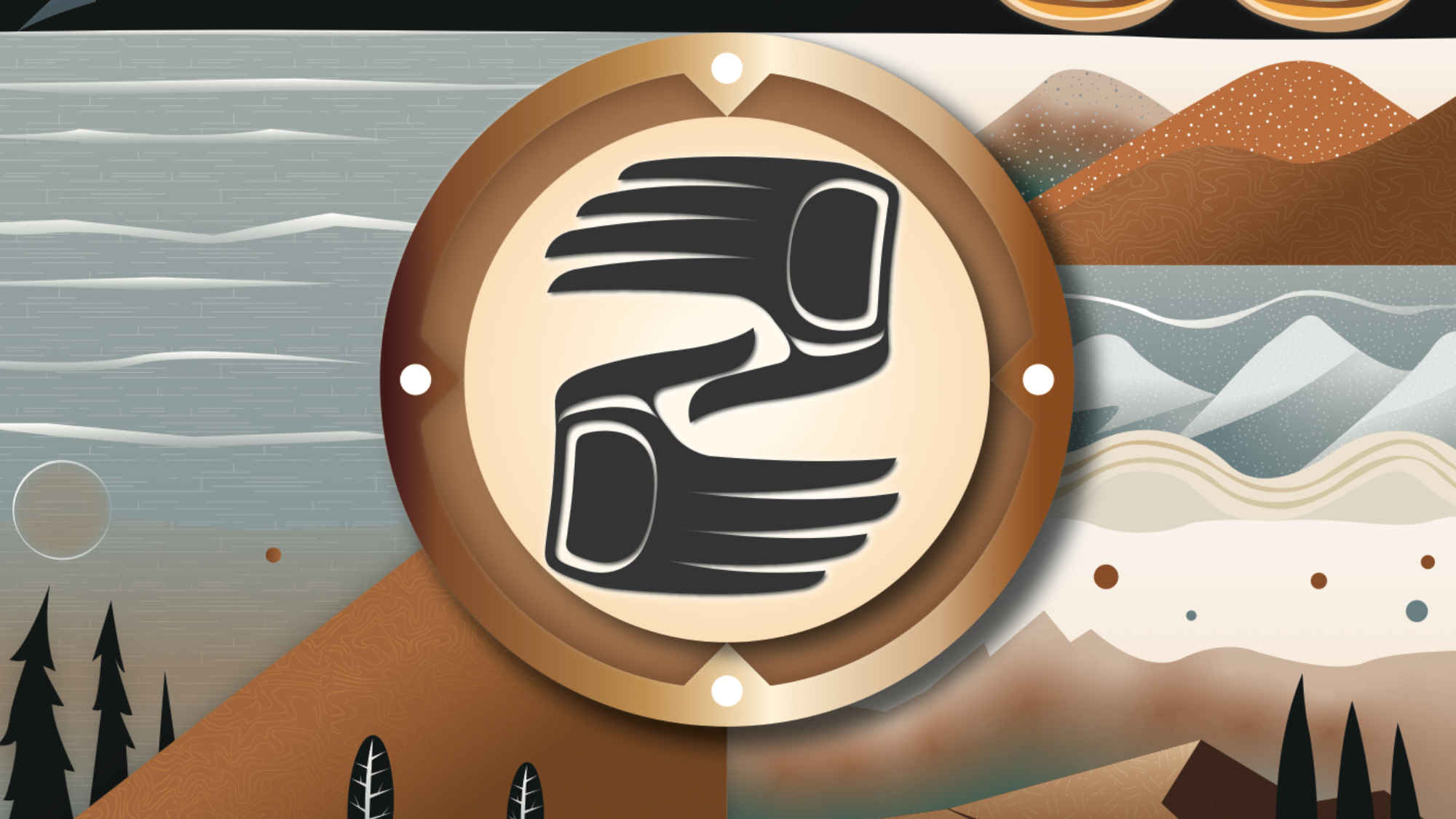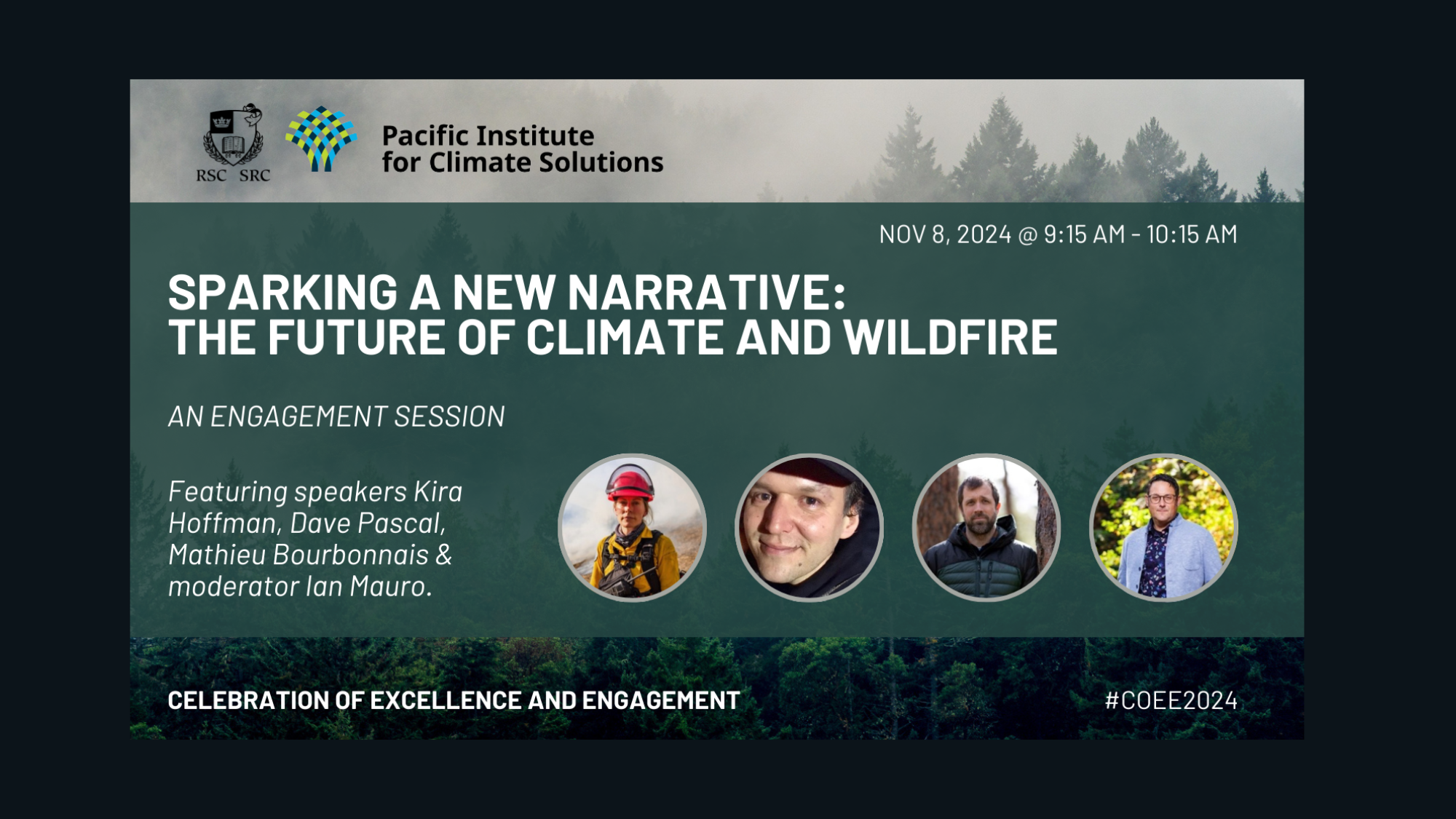How the Victoria Native Friendship Centre used PICS funding to inspire learning on the land
There are many ways to use the PICS Community Climate Action Event funding, and the Victoria Native Friendship Centre (VNFC) is a perfect example of how a small grant can make a big impact.
Initially awarded $5,000 from PICS, the Friendship Centre planned to host an event on World Environmental Education Day (Jan. 26) to identify climate issues both locally and globally. Their original vision was to bring together diverse voices to discuss environmental challenges and, at the same time, increase awareness and membership of the VNFC Bruce Parisian Library to enhance community resources on climate justice and reconciliation.
However, something serendipitous happened when Niitokamigaabaw (Dr. Deondre Smiles) connected with VNFC around the same time they received the PICS funding. Smiles, who holds a PhD in Geography from Ohio State University, was looking for ways to give back to the community through education or outreach. His initial idea was to host a seminar or workshop on Indigenous geographies at VNFC.
“I wanted to offer something that centered Indigenous perspectives in a way that was meaningful and accessible to the community.”
– Deondre Smiles
Seeing the potential for collaboration, Jam Ramjattan and Amelia Ack from VNFC’s Community Action and Learning Department worked with Smiles to develop something even bigger: a six-part Indigenous-led pilot course on Indigenous geographies. The goal was to explore connections to land, water, and space through an Indigenous lens, deepening participants’ understanding of climate justice and their relationship to the place they call home.
Stepping into story: Learning on the land
The resulting course, Stepping into Story: Learning on the Land, ran for six weeks from Jan.15 to Feb. 26, 2025. The course was offered to Indigenous and settler graduates of the VNFC Community Learning Program. The course quickly reached full capacity, and thanks to additional donations from participants, VNFC was able to expand the experience by incorporating field trips that reinforced classroom learning.
“Stepping into Story is a testament to how a small grant, when placed in the right hands, can transform into something far-reaching and meaningful.”
– Daniel Arbour, PICS partnerships and grants specialist
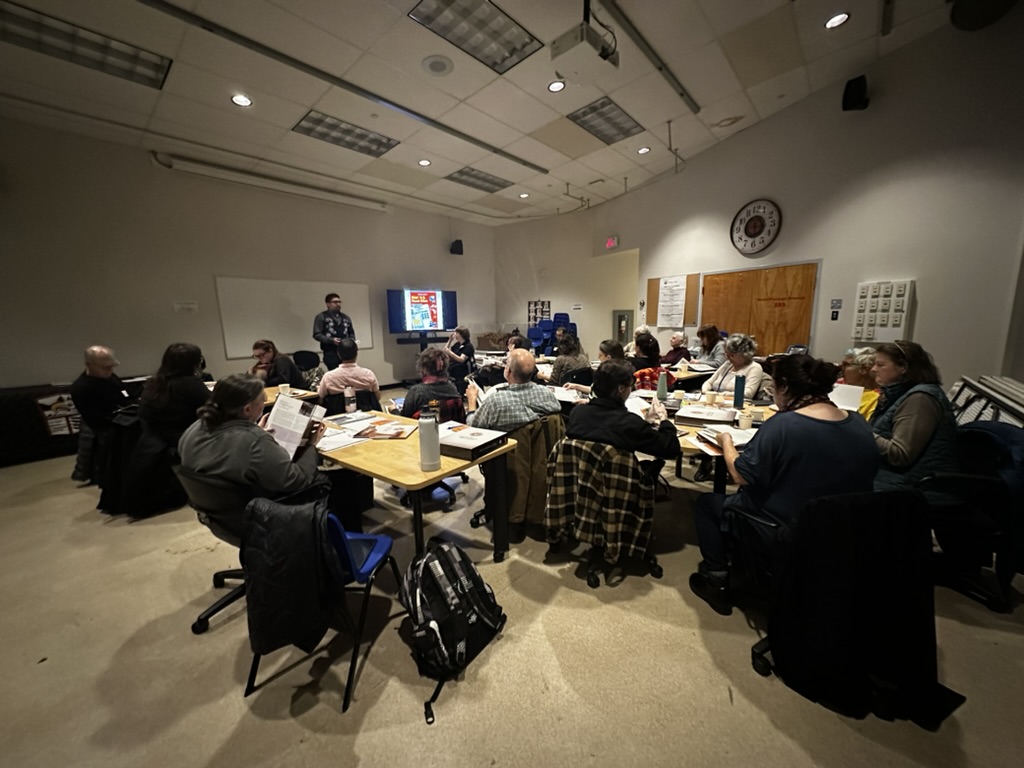
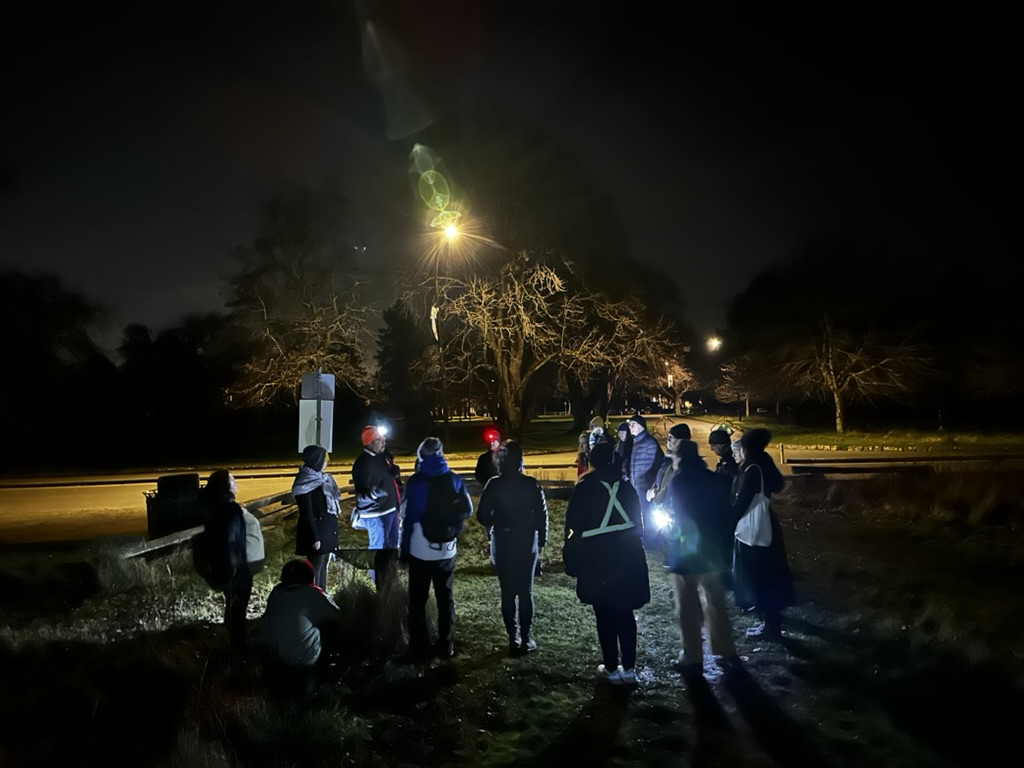
One memorable field trip took participants on an evening exploration of Mee-qan (Beacon Hill Park). Equipped with headlamps and lanterns, participants followed Smiles through the landscape, learning about the Indigenous history of the area.
Another highlight was the session on Indigenous geographies of outer space, held at the Centre of the Universe observatory. Participants explored the connections between colonization and space exploration, examining the parallels between the displacement of Indigenous peoples from their lands and the framing of space as the “final frontier”. Through Indigenous perspectives on astronomy and cosmology, participants considered alternative ways of relating to the cosmos, ones rooted in respect, reciprocity, and responsibility rather than extraction and conquest. Participants also had the rare opportunity to observe six planets through a telescope—a phenomenon known as the planet parade, which occurred throughout February 2025.
“My sense of the colonization of space had never been critically examined until this class” said a participant.
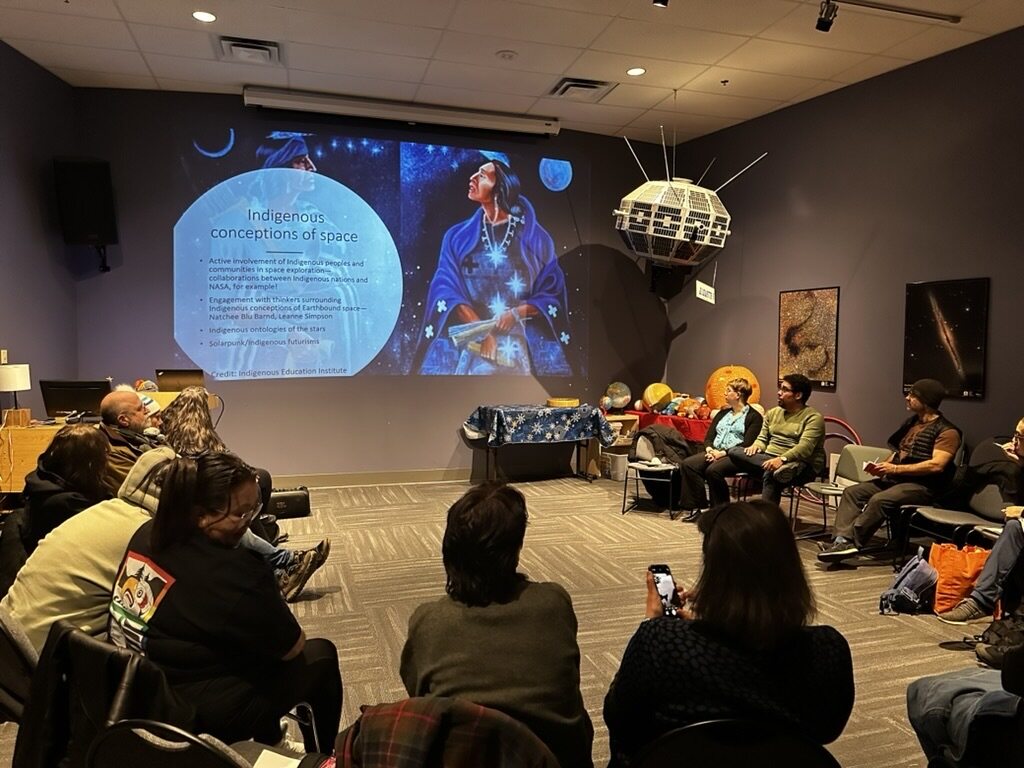

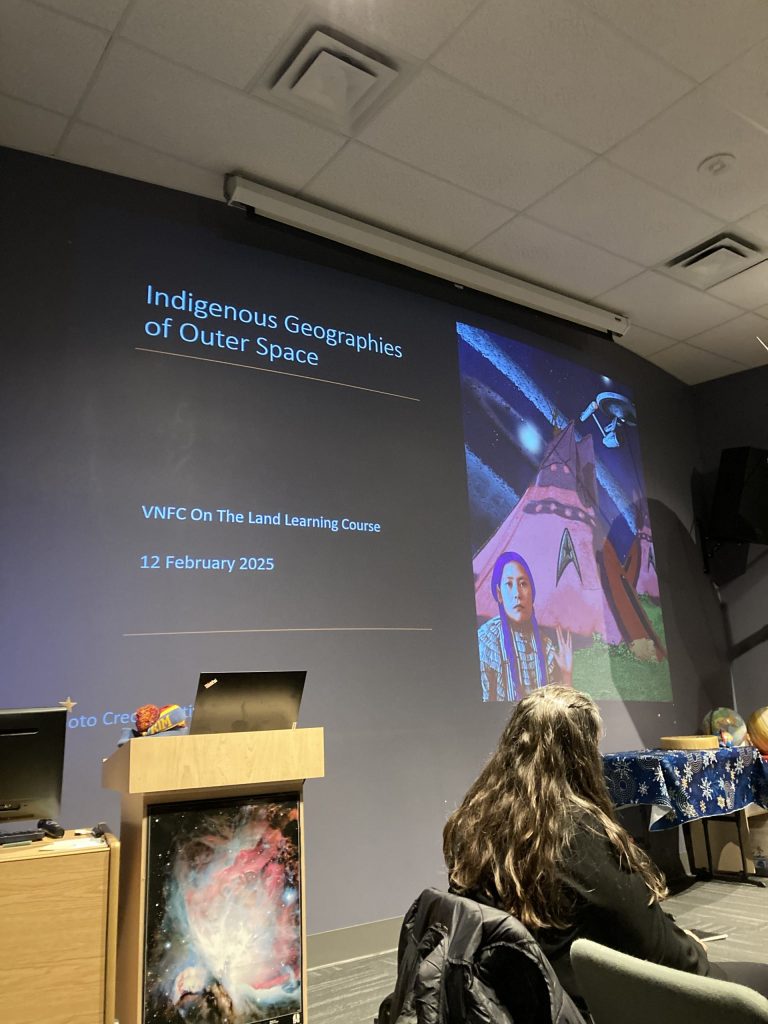
The water-focused section of the course encouraged students to reflect on their own water usage and how many First Nations communities cannot easily or consistently access clean drinking water. Meanwhile, a visit to W̱MÍYEŦEN Nature Sanctuary provided an opportunity to sit with Elder TTASELEK (Tom Sapson) and listen to teachings about Indigenous relationships with land and nature.
“I like that we sat in a circle and listened. We need to do more listening” reflected another participant.
In addition to the course, VNFC used part of the grant funding to purchase multiple copies of The Indigenous Peoples Atlas of Canada for the Bruce Parisian Library. Throughout the program, participants engaged with the atlases, sparking curiosity and a deeper interest in the library’s resources. Now part of VNFC’s permanent collection, the atlases are available for the community to borrow anytime.
By exploring the deep connections between environmental justice, Indigenous Knowledge, and climate change, participants gained valuable insights into how environmental stewardship and respect can help address broader climate challenges.
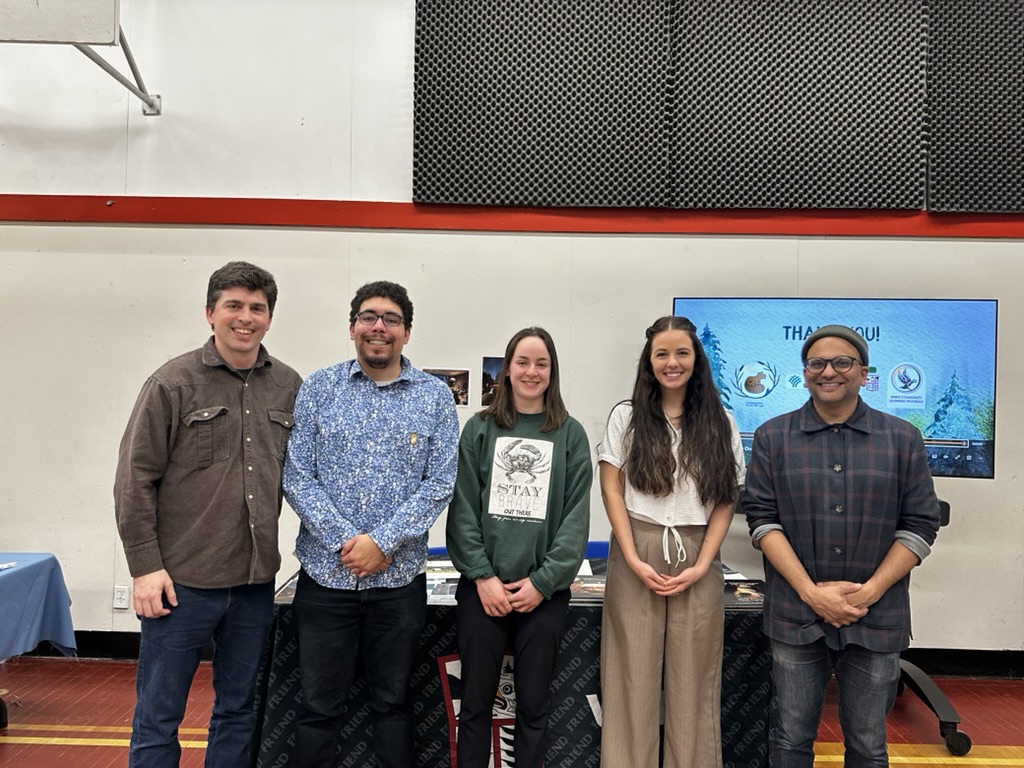
A model for other Friendship Centres
As the course wrapped up, feedback from participants was overwhelmingly positive, with many expressing interest in a second session.
“The success of this pilot course points towards opportunities for similar programs in other places. By adapting this program to the local context, other communities can foster spaces for learning, connection, and environmental action rooted in Indigenous ways of being and knowing.”
– Amelia Ack, Climate Justice Coordinator, VNFC
At its heart, this initiative reflects the power of reciprocity: knowledge shared, relationships built, and a deeper understanding of our responsibility to the places we call home. As VNFC’s experience shows, with the right support and collaboration, even a small spark of funding can ignite something truly transformative.
Christy Ascione is a communications specialist with the Pacific Institute for Climate Solutions.
